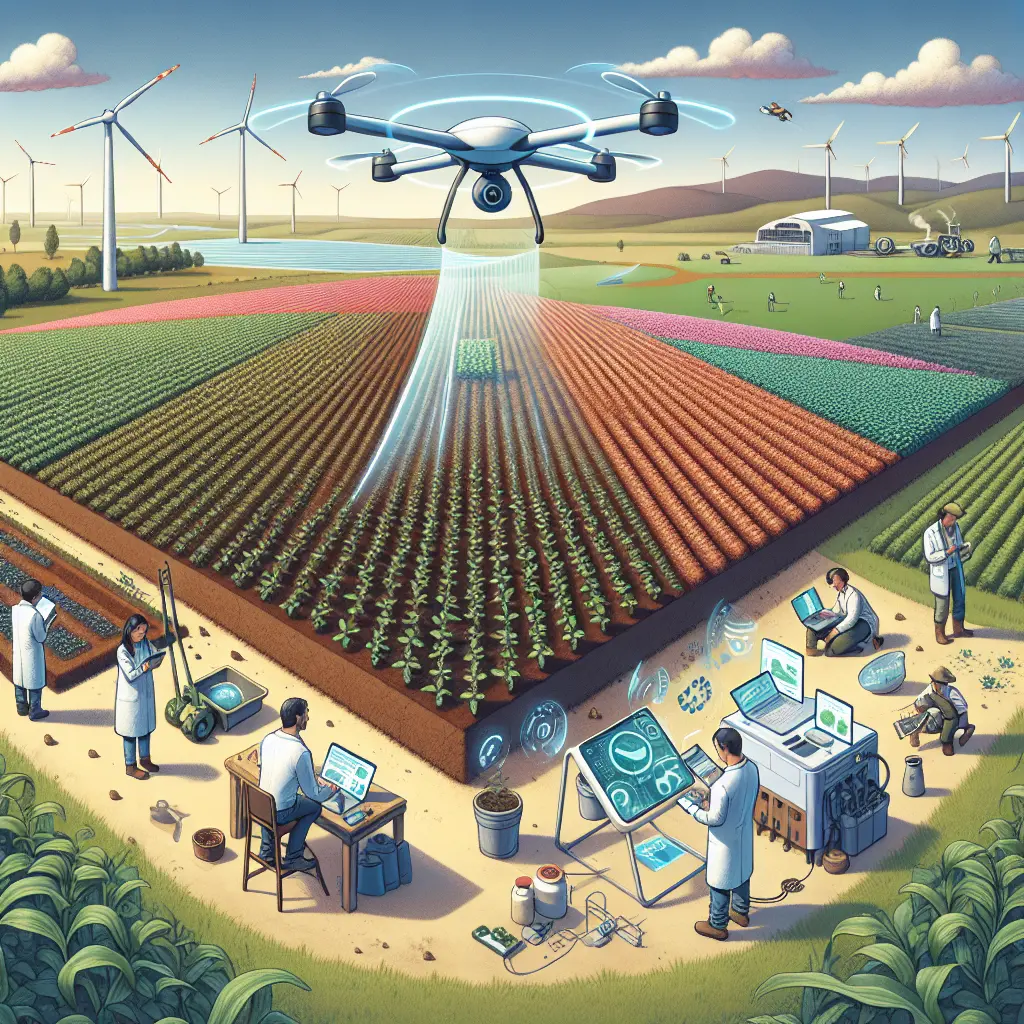
In the modern era of agriculture, the integration of technology with traditional farming practices has given rise to precision agriculture. This revolutionary approach is designed to enhance sustainable soil health and management, leading to improved crop yields and environmental conservation. By employing precision farming techniques, farmers can optimize their soil management strategies, ensuring benefits for both present and future generations.
Understanding Precision Agriculture and Its Role in Sustainable Soil Health
Precision agriculture involves advanced tools and technologies that enable precise soil health monitoring and management. These tools allow farmers to accurately assess soil nutrient levels, tailor their soil fertility practices, and implement sustainable farming methods that are both economically viable and environmentally responsible.
Recent advancements have made it possible for farmers to employ precision soil management strategies that focus on soil health improvement while contributing to sustainable crop production. For instance, precision soil management emphasizes soil health monitoring, crucial for maintaining the delicate balance of soil ecosystems and promoting healthy plant growth.
Precision Farming Techniques: A Closer Look
One key technique in precision farming is the use of soil sensors, which provide real-time data on soil conditions such as moisture levels and nutrient content. This information is invaluable for implementing soil conservation techniques that prevent erosion and degradation. By understanding their land's specific needs, farmers can apply fertilizers more efficiently, reducing waste and minimizing environmental impact.
Additionally, GPS technology plays a significant role in precision agriculture. GPS-guided machinery enables farmers to perform tasks like planting, fertilizing, and harvesting with unparalleled accuracy. This precision reduces overlap and waste, leading to more sustainable soil practices and improved resource efficiency.
Case Studies: Successful Implementation of Precision Agriculture
Several case studies highlight the successful implementation of precision agriculture strategies worldwide. For example, a project aimed at increasing food security in Africa has shown promising results by employing precision farming techniques. This initiative has not only improved crop yields but also contributed to sustainable land management practices source: Increasing Food Security in Africa.
Another example is a group of African CEOs who have redefined success by integrating modern technology into their farming operations, achieving impressive results in productivity and sustainability source: African CEOs Embracing Modern Farming.
The Economic Impact of Precision Agriculture
The economic benefits of precision agriculture are substantial. By optimizing soil nutrient management and employing sustainable practices, farmers can significantly reduce input costs while enhancing crop yields. This dual advantage is crucial in today's competitive agricultural market.
Venture capitalists (VCs) have recognized the potential of precision agriculture startups. When investing in these startups, VCs seek innovations promising scalability and sustainability source: Investing in AgriTech Startups. Startups focusing on precision farming are particularly attractive as they address critical challenges like food security and environmental conservation.
Environmental Conservation Through Precision Agriculture
Beyond economics, precision agriculture plays a vital role in environmental conservation. By promoting soil conservation techniques, it helps protect the soil from erosion and degradation—key considerations as global efforts toward environmental conservation intensify.
For instance, strategies like emerald ash borer management are part of broader efforts to maintain healthy ecosystems using precision agriculture tools source: Managing Emerald Ash Borer.
Addressing Global Challenges with Precision Agriculture
As we face global challenges such as climate change and food security, precision agriculture offers a promising pathway to achieving sustainable goals. By employing precision farming techniques, we can ensure that our soils remain fertile and productive for generations to come.
In the context of global economic trends, the need for efficient resource management aligns with precision agriculture efforts source: Global Inflation Fight.
The Future of Precision Agriculture: Trends and Forecasts
Looking ahead, the future of precision agriculture is promising. As technology advances, new tools will further enhance our ability to manage soil health sustainably. Developments in online software markets highlight the growing importance of digital solutions in various sectors source: Online Software Market Trends.
Similarly, trends in other software markets indicate a shift toward more integrated systems, mirroring the trajectory of precision agriculture sources: Retail Banking Software Analysis and Bakery Management System Forecast.
Conclusion: Embracing the Future of Agriculture with Precision
Precision agriculture stands at the forefront of transforming sustainable soil health management. By integrating advanced technologies such as soil sensors and GPS-guided machinery with traditional farming practices, it optimizes soil management for improved yields while ensuring environmental conservation. This approach not only addresses immediate agricultural needs but also aligns with broader challenges like climate change and food security.
The economic impact is profound, offering reductions in input costs and enhanced yields—making it an attractive investment for those focusing on scalable innovations. Beyond economics, it promotes soil conservation and environmental stewardship, crucial for maintaining healthy ecosystems.
Successful implementations across various regions demonstrate its potential to improve food security and sustainable land management practices. As technology evolves, the future of precision agriculture promises further advancements, emphasizing digital innovations in sustainable management.
As we navigate modern agriculture's complexities, embracing precision agriculture is not just a choice but a necessity for a resilient and sustainable future. Your insights and experiences with these techniques are invaluable—share your thoughts below. Together, let's inspire each other toward a sustainable agricultural future.
Thank you for joining us on this exploration. Let’s embrace these advancements collectively for a thriving planet.
Author: Ethan Greenwood